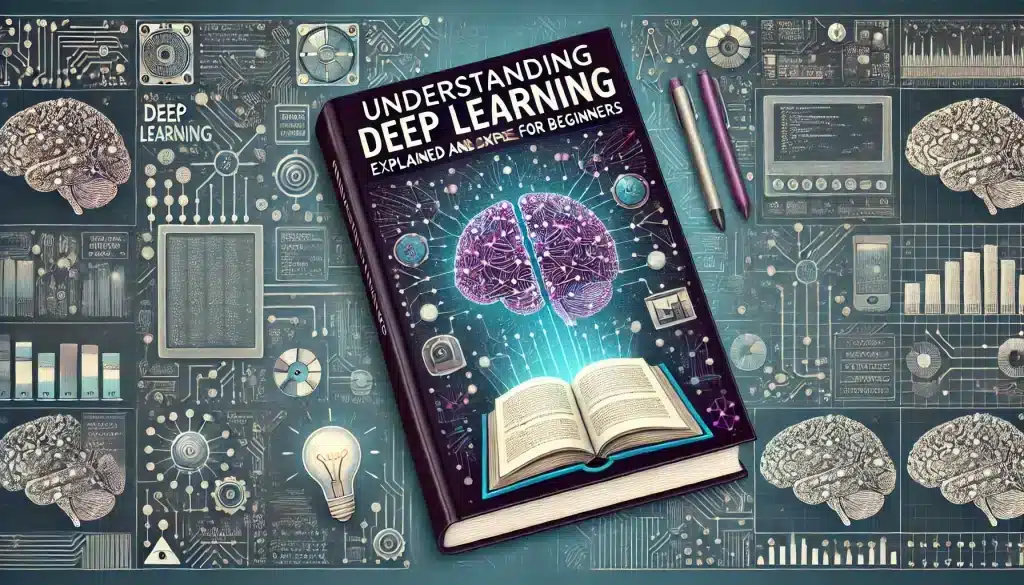In the ever-evolving digital age, artificial intelligence (AI) is revolutionizing various sectors, and the domain of remote sales is no exception. Harnessing the power of AI can significantly enhance the productivity of remote sales teams, enabling them to achieve higher efficiency and better sales outcomes. This article explores the multifaceted ways in which AI is shaping the future of sales, particularly for remote teams, by transforming sales processes, improving sales training, enhancing sales strategies, and preparing businesses for the future of AI in the sales landscape.
How Can AI Transform Remote Sales?
What Are the Benefits of AI in Remote Sales?
AI tools, such as AI chatbots and virtual assistants, help sales representatives manage their schedules, respond to client inquiries, and track sales opportunities efficiently. AI in remote sales offers numerous benefits:
- Task Automation: Routine tasks such as scheduling, email responses, and follow-ups can be automated, allowing sales teams to focus on strategic activities.
- Data Analysis: AI-powered tools analyze customer behavior and sales trends, providing insights that help sales reps tailor their approach.
- Improved Communication: AI chatbots can handle customer queries and provide instant responses, ensuring customers get timely information.
- Predictive Insights: AI can predict customer actions, including purchasing decisions, helping sales teams prioritize leads effectively.
These benefits not only make the sales process more efficient but also improve the overall customer experience, leading to better customer retention and loyalty.
How does AI enhance sales conversations?
AI technologies play a crucial role in enhancing sales conversations by providing sales reps with real-time data and feedback. AI-powered tools can analyze customer interactions, identify patterns, and suggest the most effective sales techniques to engage clients. This leads to more personalized and impactful sales conversations. Furthermore, AI can help sales teams detect the sentiment and tone of customer communications, allowing them to adjust their approaches accordingly.
What AI Tools Are Available for Virtual Sales?
There is a wide range of AI tools that can empower virtual sales teams:
- AI Chatbots: These provide immediate responses to customer inquiries, ensuring no lead is left unattended.
- CRM Systems with AI Integration: Tools like Salesforce and HubSpot leverage AI to offer predictive analytics, lead scoring, and sales forecasting.
- AI-powered Email Marketing Tools: These tools can automate and personalize email campaigns, increasing engagement and conversions.
- AI-driven Analytics Tools: These tools analyze data to predict future trends and offer actionable insights, helping sales teams stay ahead of the curve.
What Role Does Artificial Intelligence Play in Sales Training?
How can AI improve sales training programs?
AI can revolutionize sales training programs by offering personalized learning experiences and continuous feedback. AI-driven platforms can assess the performance of sales professionals, identify skill gaps, and recommend targeted training modules. Virtual simulations powered by AI can provide real-world scenarios for practice, allowing sales reps to hone their skills in a risk-free environment. Moreover, AI can track progress and adjust training content based on individual needs, ensuring that each learner receives the most relevant and effective training. This way, AI-based training programs enhance the capabilities and confidence of sales teams.
What are the advantages of using AI for sales professionals?
Sales professionals can reap numerous advantages from incorporating AI into their training and daily tasks. AI not only streamlines administrative duties, allowing sales reps to focus on strategic activities, but also provides insights that help them make informed decisions. With AI, sales professionals can leverage data-driven strategies to identify high-potential leads, optimize their sales pitches, and close deals more efficiently. Furthermore, AI-enabled tools can offer real-time performance analytics and coaching tips, enabling continuous improvement and higher sales effectiveness. Ultimately, AI empowers sales professionals to achieve better results with less effort.
How to Integrate AI into Existing Sales Training?
Integrating AI into sales training requires a strategic approach:
- Assess Current Training Needs: Identify areas where AI can make the most impact, such as lead scoring, customer engagement, or negotiation skills.
- Select the Right AI Tools: Choose AI-driven tools that align with the company’s sales goals and objectives.
- Implement AI-Based Training: Incorporate AI-driven platforms, such as virtual coaching systems and personalized learning modules.
- Provide Ongoing Support: Offer continuous training and support to help sales teams adapt to AI-driven processes.
- Monitor and Evaluate Effectiveness: Regularly assess the effectiveness of AI integration and make adjustments based on feedback and performance metrics.
By following these steps, organizations can seamlessly integrate AI into their training programs, improving the overall capabilities of their sales teams.

How does AI enhance sales strategies?
AI enhances sales strategies by providing data-driven insights that inform decision-making. Predictive analytics, a key feature of many AI tools, can analyze historical data to forecast future sales trends and identify potential opportunities. This allows sales teams to develop proactive strategies and target the right customers at the right time. AI can also segment customers based on behavior and preferences, enabling personalized marketing and sales approaches. Additionally, AI tools can monitor competitors and market conditions, offering valuable intelligence that helps sales teams stay ahead of the curve. By integrating AI into their sales strategies, businesses can achieve greater precision and effectiveness in their sales efforts.
What Are Some Examples of AI Applications in Sales?
AI applications in sales are diverse and continually evolving. Some examples include:
- AI Chatbots: These bots engage with customers on websites, social media, and messaging apps, providing instant support and generating leads.
- Predictive Analytics: AI tools analyze customer data to predict future purchasing behavior and identify sales opportunities.
- AI Recommendation Engines: These engines suggest products or services based on customer preferences, increasing upselling and cross-selling opportunities.
- Sentiment Analysis: AI tools analyze customer feedback and social media interactions to gauge brand perception and adjust sales strategies accordingly.
These AI applications improve the overall sales process, enabling teams to engage customers more effectively and increase conversions.
What is the Future of AI in the Sales Landscape?
How will future AI developments impact sales teams?
Future AI developments are poised to have a profound impact on sales teams, further enhancing their capabilities and reshaping the sales landscape. Advanced AI algorithms will provide even more accurate insights and predictions, enabling sales teams to make smarter decisions. AI-driven conversational agents will become more sophisticated, offering seamless interactions with customers across various channels. Virtual and augmented reality, powered by AI, will create immersive sales experiences that engage customers in new ways. As AI technology evolves, sales teams will be better equipped to achieve outstanding results and navigate an increasingly competitive market.
What is the role of AI in hybrid and remote sales work?
In the hybrid and remote sales environment, AI plays a critical role in bridging the gap between physical and virtual interactions. AI tools facilitate seamless communication and collaboration among remote sales teams, ensuring that everyone stays connected and aligned with their goals. AI-powered platforms can provide real-time updates, task management, and performance tracking, enabling sales managers to oversee remote teams effectively. Moreover, AI can enhance virtual sales presentations by offering insights on customer engagement and suggesting improvements. By leveraging AI, businesses can maintain high productivity levels and achieve success in both hybrid and remote sales settings.
How can businesses prepare for the future of AI in sales?
To prepare for the future of AI in sales, businesses must adopt a proactive approach to integrating AI into their operations. This involves staying informed about the latest AI trends and developments and investing in the right AI technologies that align with their sales objectives. It is essential to foster a culture of continuous learning and innovation, encouraging sales teams to embrace AI tools and techniques. Providing regular training and support will help sales reps adapt to new AI-driven processes and maximize their potential. By taking these steps, companies can position themselves for long-term success in an AI-driven sales landscape.
How can AI tools be used to enhance sales calls?
AI tools can significantly enhance sales calls by providing sales reps with real-time insights and support. For instance, AI can analyze customer data to offer personalized recommendations during the call, helping sales reps tailor their pitches to the customer’s needs. AI-powered transcription services can capture and analyze conversations, providing valuable feedback on communication styles and identifying areas for improvement. Additionally, sentiment analysis tools can gauge the customer’s mood and adjust the sales approach accordingly.
Conclusion
AI is transforming remote sales by enhancing efficiency, improving training, personalizing sales strategies, and providing valuable insights. As AI continues to evolve, its impact on sales teams will only grow, helping them achieve better results with less effort. By integrating AI into their sales processes, businesses can optimize productivity, improve customer engagement, and stay ahead of the competition. The future of sales is AI-driven, and companies that embrace these technologies will be better equipped to succeed in the ever-changing sales landscape.
FAQs
1. How can AI improve remote sales efficiency?
AI can enhance remote sales efficiency by automating routine tasks such as data entry, lead management, scheduling, and follow-ups. AI-powered tools like CRM systems can handle these tasks, allowing sales teams to focus on higher-priority activities, such as relationship building and closing deals.
2. What role does AI play in personalizing sales conversations?
AI enhances sales conversations by providing real-time insights into customer behavior, preferences, and interactions. By analyzing customer data, AI can suggest the most effective sales techniques, identify the best times to reach out, and help personalize communication. AI-driven tools can also assess sentiment and tone in customer interactions, enabling sales reps to adjust their approach for more impactful and relevant conversations.
3. How does AI help with sales training?
AI plays a key role in revolutionizing sales training by offering personalized learning experiences. AI-driven platforms can identify individual skill gaps and recommend targeted training modules to address those areas. Virtual simulations powered by AI provide sales reps with real-world practice scenarios, helping them refine their skills in a risk-free environment.



